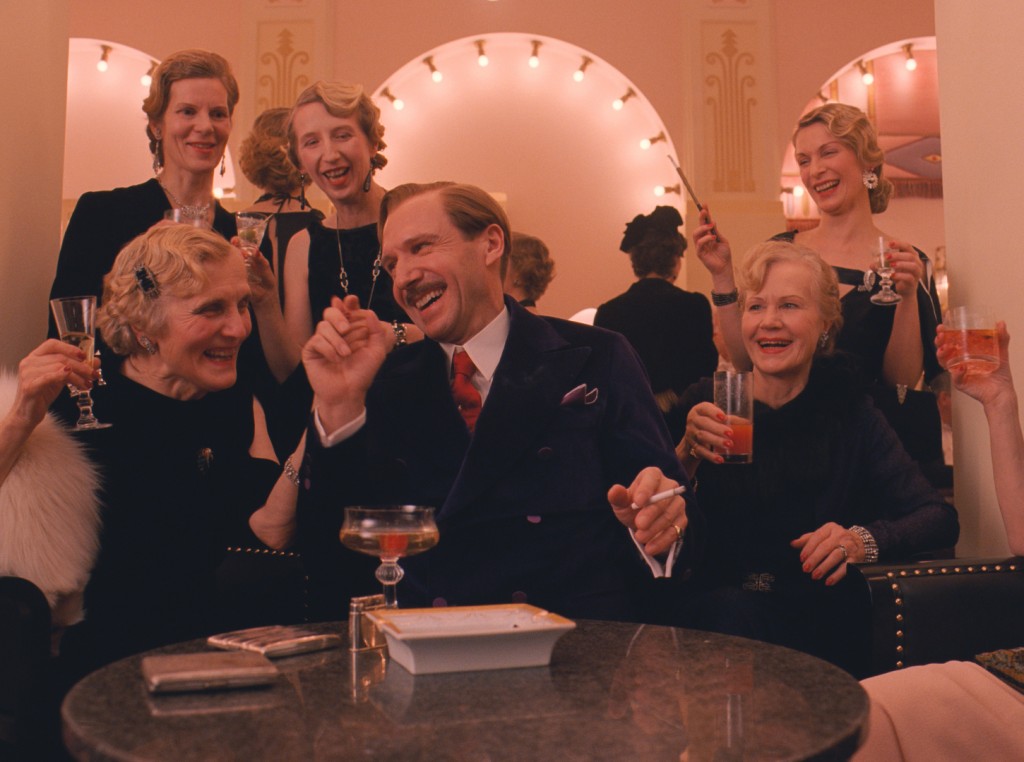Wes Anderson is once again larger than life

By Gina Scialabba/The Guardsman
Wes Anderson is more than a director and screenwriter. He is a brand, a veritable institution with a cult of loyal followers.
If this is your first Wes Anderson film, you’ll want to do your homework before going to see “The Grand Budapest Hotel.” Why? Because his vision of the world is highly susceptible to being misunderstood—it’s quirky, nostalgic, whimsical and eccentric.
Everything looks gloriously overdone, but subdued at the same time.
Anderson uses his idiosyncratic directorial and writing style to explore larger themes of family, love and death, all cloaked in over-the-top, ridiculous humor delivered with deadpan precision.
Case in point: Bill Murray in Anderson’s “The Life Aquatic with Steve Zissou” or Edward Norton in “Moonrise Kingdom.” I
t’s quite easy to get lost in Anderson’s genius. Dip your toe in “The Royal Tenenbaums,” “Rushmore” or “The Fantastic Mr. Fox” and you’ll see what I mean.
His films make you feel like you’re involved in one big, inside joke. You’re dying to be a part of it, but don’t quite understand every reference. But when you do, you feel like a member of an elite, highbrow film club.
In “The Grand Budapest Hotel,” Anderson tackles the decline of civilization amidst the background of a “Grand Hotel” somewhere in a small German town between World Wars I and II.
It’s a mythical world that’s parallel to our own, but keenly magnified by rich colors, characters and plot.
“The Grand Budapest Hotel” is not, in fact, in Budapest, but that’s part of the movie’s charm. It’s told in flashbacks, as a story-within-a-story. The story flows smoothly, thanks to Anderson’s storytelling genius.
Ralph Fiennes is particularly brilliant in his role as Gustave, a Don Juan-like concierge in a stylish purple suit. He is the nerve center of the “Grand Hotel.” Nothing happens or doesn’t happen without his blessing.
Gustave has a knack for making guests feel right at home, usually the older, wealthier female patrons—and he certainly has the passion to “serve.”
You might say he is a butler, a life coach and a prostitute, all in one.
We follow along through Gustave’s misadventures—a murder mystery, a prison break (possibly the most hilarious scene in the film), a stolen painting and a raging battle for an enormous family fortune.
Along the way we meet Zero (Tony Revolori), the lobby boy who becomes Gustave’s sidekick. It becomes a buddy film, Wes Anderson style.
Revolori is largely an unknown actor. Yet he does a tremendous job of keeping up with all the big-name players. He’s funny, delivers his lines with precision and doesn’t get overshadowed.
In usual Anderson fashion, we are greeted with a cast of brilliant performers all playing
bizarre characters (Edward Norton, Jeff Goldblum, Adrien Brody, Jude Law, Owen
Wilson, Bill Murray, Willem Dafoe, Harvey Keitel), leaving the audience to wonder who
will show up next.
To give away much more wouldn’t be fair to moviegoers. You’ll have to see it for
yourself to understand.
There are so many one-liners and inside jokes, you’ll probably need to see the movie
several times over just to catch half of it.
Just try to keep an open mind when going to see this movie.
If you’re an Anderson fan, you’re in for a treat. If you’re new to Anderson-esque style, it’s an experience.
By the end, you might feel slightly disappointed. Not at the movie, but that this world Anderson created has ended and you have to go back to mundane rituals of real life.
Should you go? Yes, but first, stop binging on “House of Cards” just for an evening. Frank Underwood can wait. Instead, queue up “Bottle Rocket,” “The Darjeeling Limited” or “The Royal Tenenbaums.” You’ll be glad you did.
If you go……
Run Time: 100 Minutes
Genre: Comedy/Drama
Opening Date: March 7, 2014
Directed by Wes Anderson
Screenplay by Wes Anderson
Stars:
Ralph Fiennes
Tony Revolori
Adrien Brody
Willem Dafoe
Jeff Goldblum
Jude Law
Bill Murray
Edward Norton

Comments are closed.